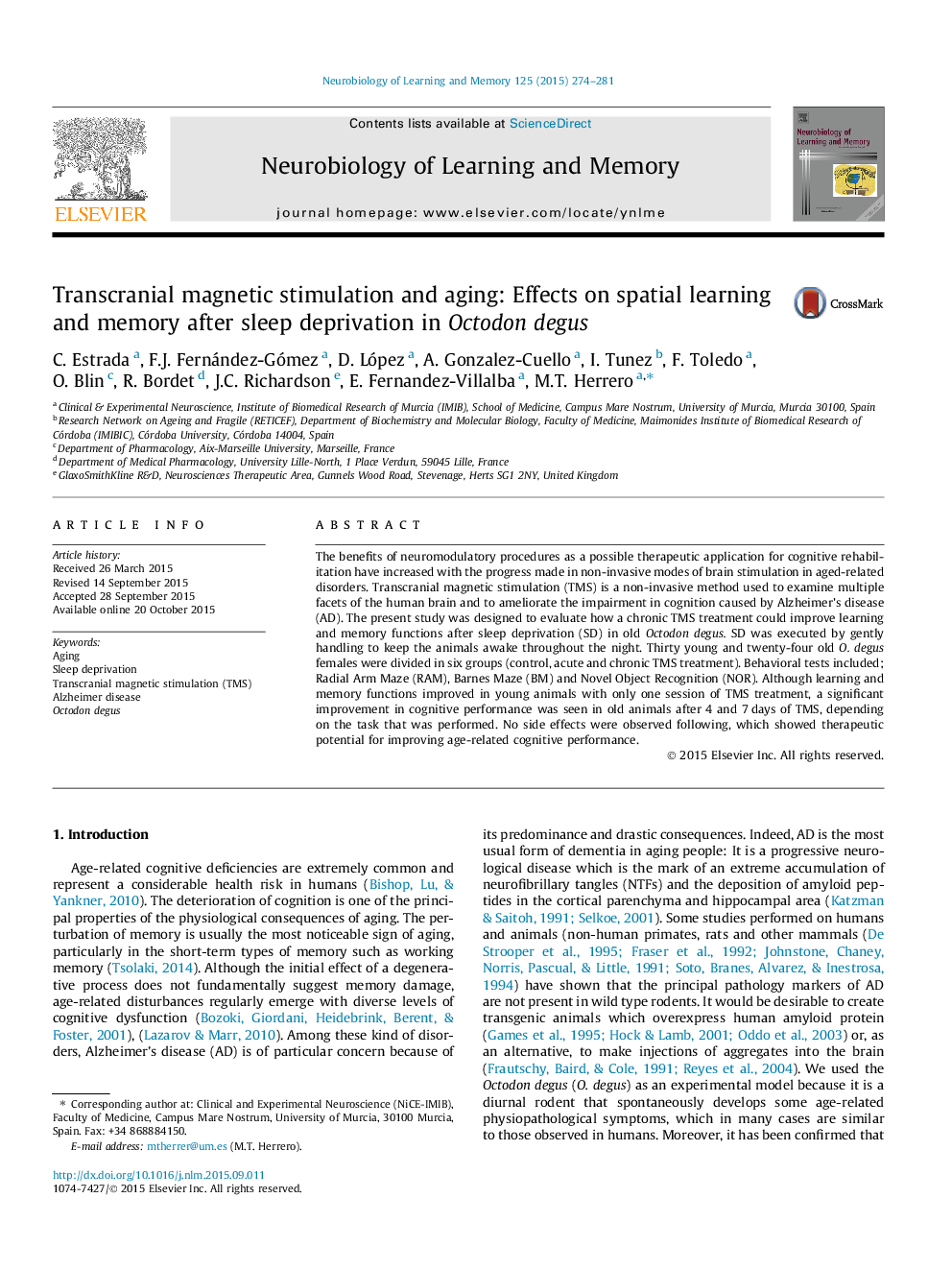| Article ID | Journal | Published Year | Pages | File Type |
|---|---|---|---|---|
| 7299413 | Neurobiology of Learning and Memory | 2015 | 8 Pages |
Abstract
The benefits of neuromodulatory procedures as a possible therapeutic application for cognitive rehabilitation have increased with the progress made in non-invasive modes of brain stimulation in aged-related disorders. Transcranial magnetic stimulation (TMS) is a non-invasive method used to examine multiple facets of the human brain and to ameliorate the impairment in cognition caused by Alzheimer's disease (AD). The present study was designed to evaluate how a chronic TMS treatment could improve learning and memory functions after sleep deprivation (SD) in old Octodon degus. SD was executed by gently handling to keep the animals awake throughout the night. Thirty young and twenty-four old O. degus females were divided in six groups (control, acute and chronic TMS treatment). Behavioral tests included; Radial Arm Maze (RAM), Barnes Maze (BM) and Novel Object Recognition (NOR). Although learning and memory functions improved in young animals with only one session of TMS treatment, a significant improvement in cognitive performance was seen in old animals after 4 and 7Â days of TMS, depending on the task that was performed. No side effects were observed following, which showed therapeutic potential for improving age-related cognitive performance.
Keywords
Related Topics
Life Sciences
Neuroscience
Behavioral Neuroscience
Authors
C. Estrada, F.J. Fernández-Gómez, D. López, A. Gonzalez-Cuello, I. Tunez, F. Toledo, O. Blin, R. Bordet, J.C. Richardson, E. Fernandez-Villalba, M.T. Herrero,
